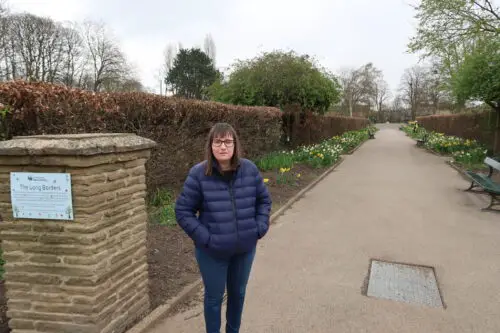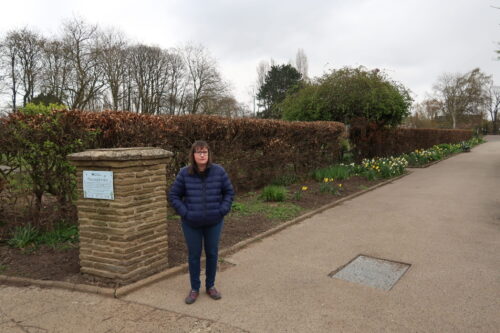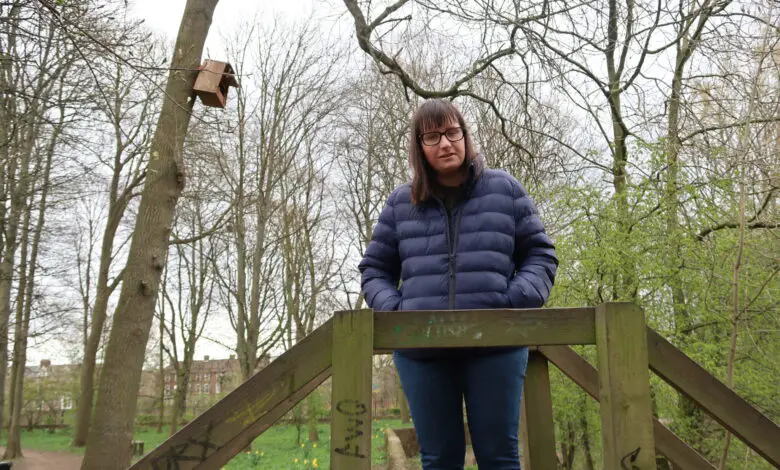
Finding the balance between sharing the positivity and reality as a disabled person
Many disabled bloggers and influencers use their platforms to share the highs and lows of living with a disability or health condition. But how do they balance the positivity and reality in their content?
Holly, a visually impaired blogger, recently published this blog post on her blog Life of a Blind Girl, in which she examines how she finds the balance between sharing the positivity and reality as a disabled person.
Over the years, I’ve become a lot more comfortable and open when talking about my vision impairment. I don’t sugar-coat anything when it comes to talking about my disability, both online and offline. My blog is filled with the highs and the lows.
I sometimes take a trip down memory lane and scroll through the archive of blog posts trying to gather some inspiration for future content.
Whilst doing this recently, one thought that sprung to mind was how I find the balance of sharing both the positives and the reality of having a disability.
I talk about the frustrations of inaccessibility and changes I’d like to see, as well as every aspect of my disability – from acceptance, to confidence and independence. I also try to make my writing a bit more unique by sharing posts such as some of the life lessons it has taught me, my thoughts on disability and body image, and how I found the beauty of having a vision impairment.
I try to share all angles and discuss a range of topics, from personal pieces to educational and informative posts. Many of my blog posts give my readers a glimpse into my life as a young person with a disability, but how do I find that middle ground between sharing the positivity and reality?
With the recent lifting of restrictions in parts of the UK, my social media has been filled with a mix of people making the most of some normality, but some disabled people were giving a gentle reminder that for many, lockdown is still the reality.
Others were highlighting that they would like to see friends and family, but their plans are often dictated by accessibility (or lack of). This got me thinking about the line between positivity and reality even more, because it’s not always as straight forward as we might think.
The pressure to be positive
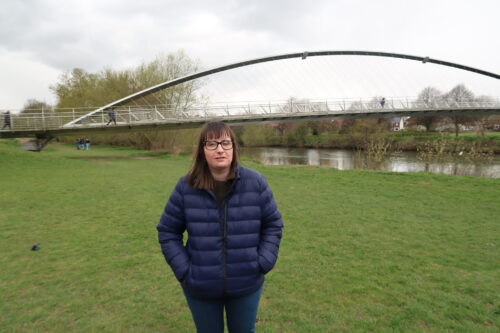
As someone who chooses to talk about their life as a disabled person online, it can sometimes be hard to find the balance between sharing the positives and the reality. I think some of this comes from pressure.
We’ve all felt pressured at some point in one way or another. If you’re like me, you’ve probably felt the pressure to be positive about your disability, whether it’s by others in your circle, feeling influenced by posts on social media or the fact you don’t want to seem like you’re matching up to the misconceptions.
Whilst finding the positives is extremely important, we also need to address the reality.
Addressing the reality as a disabled person often comes with assumptions from others which may pile on the pressure of being positive all the time. It can then be harder to find the balance between being positive and sharing the true picture.
There’s also an element of living up to expectations which creates added pressure. People often assume that just because another disabled person achieved something, that we should all do the same.
If we explain that we can’t or don’t want to do that particular thing, it is assumed that our disability is holding us back. When as a matter of fact, there’s a whole host of reasons we might not go on to do the same thing as said disabled person.
We might not do it for disability related reasons (which is a completely valid reason by the way), but it could also be the fact that we simply don’t have any interest in that area.
Disabled people can’t fit into one box, we’re all different and unique in our own ways

The pressure to achieve similar things to blind and visually impaired people in the same age bracket as me, was something I really started to notice when I was a teenager, whilst I was making important decisions about my future.
People would ask me “are you going to go travelling like that person did?” or “so and so is working towards… and look at them now, are you going to do that as well?”
I had my own hobbies and goals that I wanted to achieve, and still do. The fact that I didn’t follow the same path as some of my blind and visually impaired acquaintances was nothing to do with my vision impairment.
Automatic assumptions
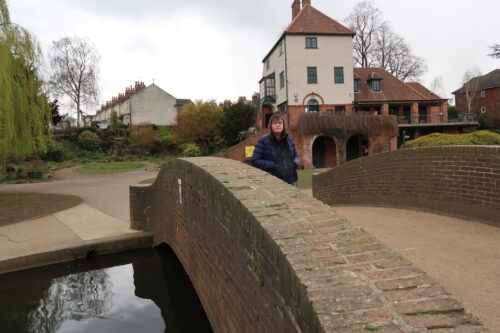
I think that difficulty in striking the right balance between positivity and reality also comes from assumptions from others.
There seems to be an assumption that disabled people don’t have the right to express our frustrations, because we should be grateful for what we have.
Before we go any further, let me set the record straight here – I’m beyond grateful for everything I have, and know how lucky I am to be in the position I’m in.
But the fact is, I get frustrated by the lack of accessibility, societal barriers are very much present and there are still obstacles that I have to navigate in order to lead the life I want to.
It’s okay for disabled people to share our frustrations. If we didn’t speak up, then change wouldn’t happen. And quite frankly, change needs to happen.
Sharing our feelings or frustrations seems to mean that we are ungrateful for what we have, which is not the case at all. We’re simply sharing them in order to ask for something to be made accessible or show that there is still work that needs to be done.
I think it’s important to recognise that most of the time, we aren’t frustrated by our disability itself, it’s the societal barriers that are the frustrating aspect.
My blindness isn’t the issue, it’s the inaccessibility, inequality and misconceptions that are the problem. I’m happy being disabled, and that won’t change.
I talk about my disability a lot online, but I’ve previously been hesitant to share some of the negatives because I don’t want to seem like I’m conforming to the assumptions. I also don’t want sympathy just for trying to live my life.
I’ve become more aware of the importance of sharing my life with a vision impairment, and that includes both the positives and negatives.
I also know that speaking up is vital in encouraging people to evaluate their assumptions and to break down stereotypes.
I want my online content to reflect my life as a disabled person, and that means sharing the positives and negatives, as well as everything in between.
The importance of sharing the reality

I think we need to recognise the importance of sharing the reality. We may feel discouraged from doing so, but the impact and reasons for doing that far outweigh anything else.
The reality of having a disability can often be harder to discuss for various reasons, but sharing the realities makes a difference. They are the conversations we need to be having.
Talking about the reality means that we’re not filtering our lives, we’re being real and honest.
I’m not saying that you should share everything, privacy is key, but it’s important to talk openly about the things you want to share and the things that matter to you.
You never know what battles someone else is going through, so by sharing yours, someone may feel less alone. It can be comforting to know that you aren’t on your own when facing the trials and tribulations that life throws at us.
It also means that we are coming together as a community and supporting each other.
Finding the balance

Sharing your life online isn’t for everyone, and that’s okay. You are just as much of an important part of the disabled community than those of us that choose to use our online platforms in this way.
Whether online or offline, we all have to talk about our disability, whether it’s working out how to answer intrusive questions, educating others, or for personal/professional reasons, we are all faced with the situation of whether to share some of the harsh realities or not.
But we all need to find the balance sometimes.
You should never feel guilty for being open and honest. Honesty is the best policy right?
Don’t be discouraged from sharing the realities. As I’ve previously said, sharing the reality is extremely important, always remember that whenever you are having any doubt.
Never be anyone but yourself. Pressure can get a little too much sometimes, but don’t give in to the pressure. Be your authentic self no matter what.
Take some time for yourself. Step away from things for a while and do something you enjoy. This can help us balance various aspects of life, but taking some time for yourself and switching off helps you keep that balance in check.
I’ll always make sure that I take some time out of my day to relax and wind down, and it helps me to recharge, ready to face things the next day.
You don’t have to share everything on social media, nor do you have to tell someone every single detail about your disability. Remember that you have a choice. I only share a small proportion of my life online, doing so helps me evaluate the things I want to share and the things I want to keep private.
Finding the line between sharing the positivity and the reality might be hard to stick to sometimes, but there are some factors that can help balance the weight out.
How do you find the balance between sharing the positivity and reality as a disabled person? Let us know in the comments box or on Facebook and Twitter @Dhorizons.
By Holly
Check out Holly’s blog Life of a Blind Girl and follow her on Facebook, Twitter and Instagram.
More on Disability Horizons…
